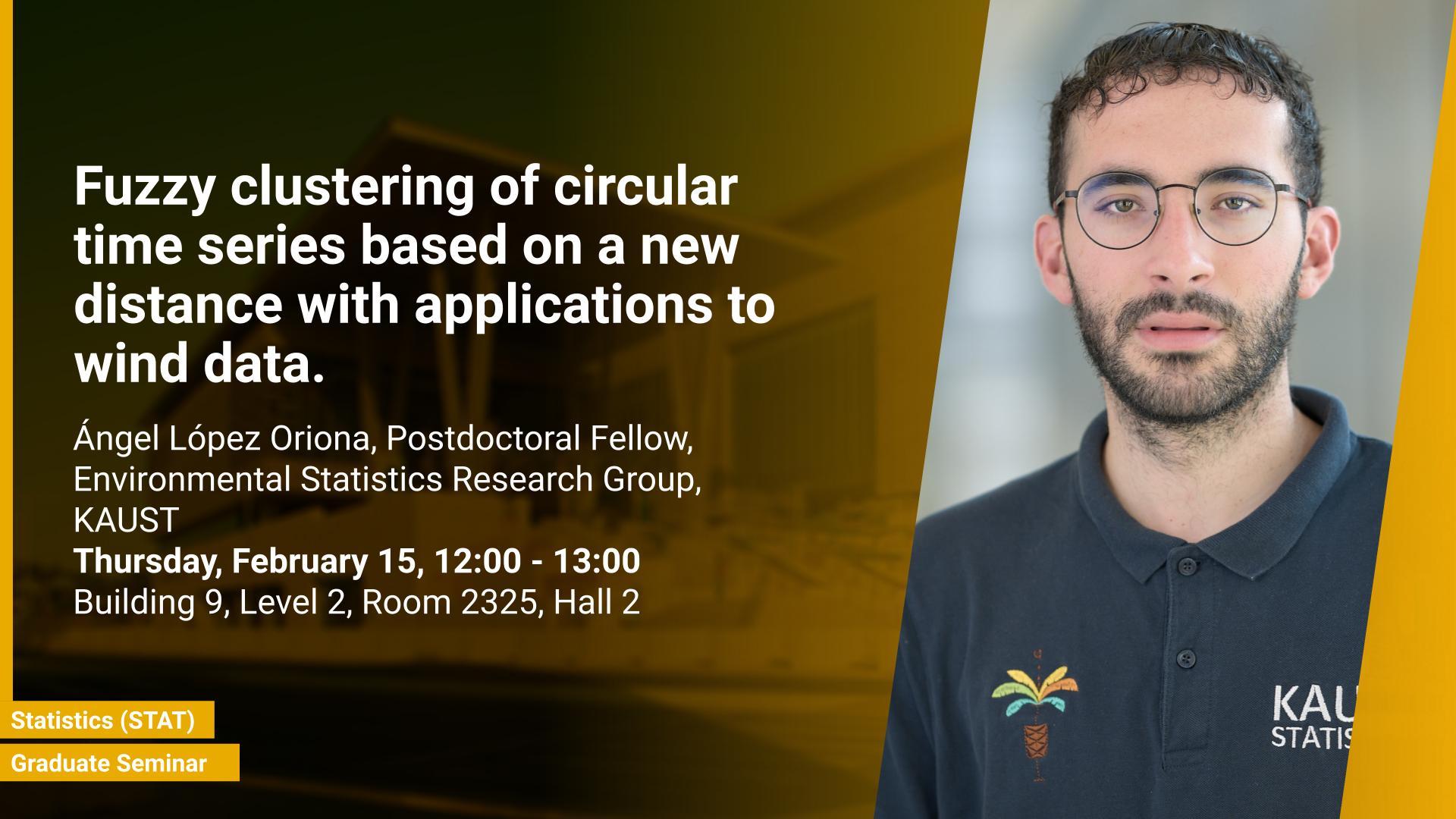Event Start
Event End
Location
Abstract
Time series clustering is an essential machine learning task with applications in many disciplines. While the majority of the methods focus on time series taking values on the real line, very few works consider time series defined on the unit circle, although the latter objects frequently arise in many applications. In this talk, the problem of clustering circular time series is discussed. To this aim, a distance between circular series is introduced and used to construct a clustering procedure. The metric relies on a new measure of serial dependence considering circular arcs, thus taking advantage of the directional character inherent to the series range. Since the dynamics of the series may vary over the time, we adopt a fuzzy approach, which enables the procedure to locate each series into several clusters with different membership degrees. The resulting clustering algorithm is able to group series generated from similar stochastic processes, reaching accurate results with series coming from a broad variety of models. An extensive simulation study shows that the proposed method outperforms several alternative techniques, besides being computationally efficient. Two interesting applications involving time series of wind direction in Saudi Arabia highlight the potential of the proposed approach.
Brief Biography
Ángel López Oriona is a postdoctoral fellow at the King Abdullah University of Science and Technology (KAUST) in the Environmental Statistics Research Group led by Prof. Ying Sun. He obtained his PhD in Statistics at the University of A Coruña (Spain) under the supervision of Dr. José Antonio Vilar Fernández. His current research interests include time series data mining, fuzzy set theory and directional statistics, among others.
